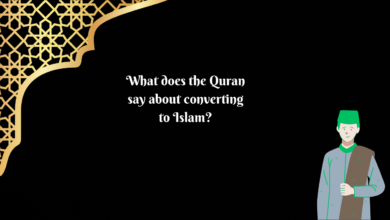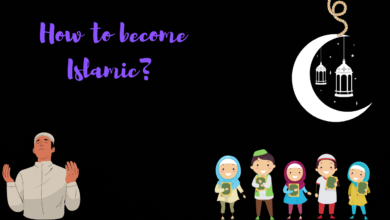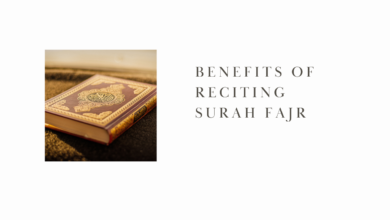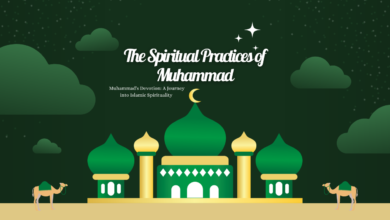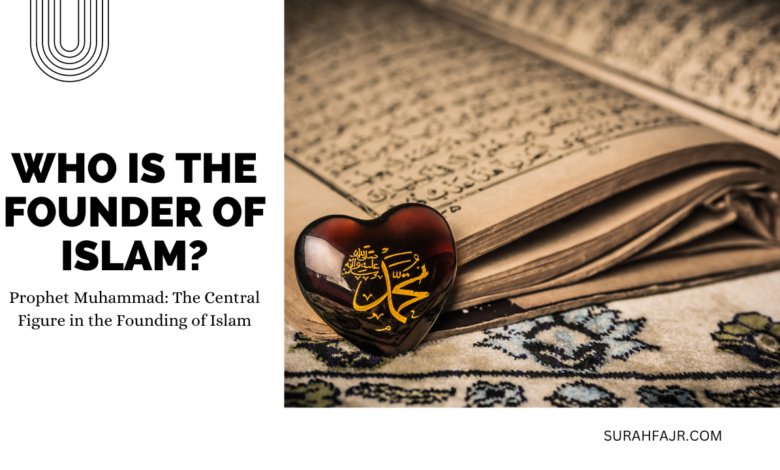
Who is The Founder of Islam?
The founder of Islam is Prophet Muhammad, peace be upon him.
Introduction
Islam is one of the world’s major religions, with over a billion followers worldwide. It is a faith that dates back over 1,400 years, rooted in the teachings and actions of its prophet, Muhammad. However, the question of who founded Islam is one that often arises, as the religion has a rich and complex history that extends beyond the life of its founder. In this article, we will explore the origins of Islam, its central figure, and the historical context in which it emerged.
The Origins of Islam
Islam, like other Abrahamic religions such as Christianity and Judaism, has its roots in the monotheistic tradition. The religion’s central text, the Quran, is believed by Muslims to be the literal word of God as revealed to the Prophet Muhammad. To understand the founder of Islam, we must look at the life and teachings of Muhammad, who is considered the final prophet in a long line of prophets in Islam, beginning with Adam and including figures like Abraham, Moses, and Jesus.
The Prophet Muhammad
Muhammad was born in Mecca, present-day Saudi Arabia, around 570 CE. He belonged to the influential Quraysh tribe and worked as a merchant. At the age of 40, Muhammad began receiving revelations from God through the angel Gabriel, which continued over a period of 23 years. These revelations were later compiled into the Quran, the holy book of Islam. Muhammad’s mission was to deliver the message of monotheism and guide people to worship the one true God, known as Allah in Arabic.
Muhammad’s teachings emphasized social justice, moral conduct, and the importance of compassion, charity, and kindness. He preached against idol worship and tribal divisions, calling for the unity of all believers in the worship of one God. Muhammad’s message gained a following, and his followers, known as Muslims, faced persecution from the Quraysh leaders in Mecca.
Migration to Medina
In 622 CE, due to increasing hostility and threats to his life, Muhammad and his followers made the historic migration (Hijra) to the city of Yathrib, which later became known as Medina. This event marks the beginning of the Islamic lunar calendar and is considered a significant turning point in Islamic history.
In Medina, Muhammad became both a religious leader and a statesman, establishing a new community based on the principles of justice and equality. His teachings guided the lives of his followers, and the Quran provided them with a moral and legal framework.
Spread of Islam
Over the next decade, Islam spread rapidly throughout the Arabian Peninsula, and Muhammad continued to receive revelations that addressed various aspects of life, including family, warfare, and governance. Muhammad also entered into alliances and agreements with various tribes and communities, which further contributed to the religion’s growth.
Muhammad’s Death and Legacy
In 632 CE, Muhammad passed away in Medina, leaving behind a united and rapidly expanding Muslim community. His teachings and actions were compiled in the Hadith (collections of his sayings and actions) and became an essential source of guidance for Muslims.
While Muhammad is not considered the “founder” of Islam in the traditional sense, he is unquestionably the central figure and prophet of the religion. His role was to deliver God’s final message to humanity and exemplify its principles through his life and actions. The Quran and Hadith provide Muslims with a comprehensive guide to faith, worship, morality, and law.
Conclusion
In conclusion, the founder of Islam, in the religious sense, is considered to be God, who revealed the religion’s core principles and teachings to the Prophet Muhammad. Muhammad, in turn, played a pivotal role in spreading and codifying these teachings. While not the “founder” in the way that we typically think of founders of organizations or movements, Muhammad is undoubtedly the most significant figure in Islamic history. His life, teachings, and actions continue to shape the lives of over a billion Muslims worldwide, making him a central and revered figure in the history of Islam.
(FAQs) about the founder of Islam, Prophet Muhammad:
Who is the founder of Islam?
The founder of Islam is Prophet Muhammad, peace be upon him.
When and where was Prophet Muhammad born?
Prophet Muhammad was born in Mecca, present-day Saudi Arabia, in the year 570 CE (approximately).
What is the significance of Prophet Muhammad in Islam?
Prophet Muhammad is considered the final prophet and messenger of God in Islam. He is revered as the “Seal of the Prophets” and is central to Islamic beliefs and teachings.
How did Prophet Muhammad receive the revelations from God?
Prophet Muhammad received the revelations from God through the angel Gabriel (Jibril in Arabic). These revelations were later compiled into the Quran, the holy book of Islam.
What are some of the key events in the life of Prophet Muhammad?
Some of the key events in Prophet Muhammad’s life include his birth, the revelation of the Quran, the migration to Medina, various battles, and his final pilgrimage to Mecca.
hat is the significance of the migration to Medina (Hijra)?
The migration to Medina, known as the Hijra, marks the beginning of the Islamic lunar calendar and is a crucial event in the history of Islam. It symbolizes the establishment of the first Muslim community and marks the transition from a persecuted minority in Mecca to a thriving Muslim society in Medina.
How did Prophet Muhammad pass away?
Prophet Muhammad passed away in the year 632 CE in Medina. His death is known as the “Demise of the Prophet” and is a significant event in Islamic history.
What is the role of Prophet Muhammad in Islamic tradition?
Prophet Muhammad is considered the role model for Muslims, and his life and teachings are a source of guidance for personal conduct, ethics, and spirituality.
How do Muslims express their reverence for Prophet Muhammad?
Muslims express their love and respect for Prophet Muhammad by sending blessings and peace upon him when mentioning his name (e.g., “Peace be upon him” or “Sallallahu Alaihi Wasallam”). They also engage in acts of worship and strive to emulate his character and actions.
What are some of the titles and honorifics used for Prophet Muhammad?
Prophet Muhammad is often referred to by titles such as “The Messenger of God,” “The Seal of the Prophets,” and “The Mercy to the Worlds” in Islamic tradition.

